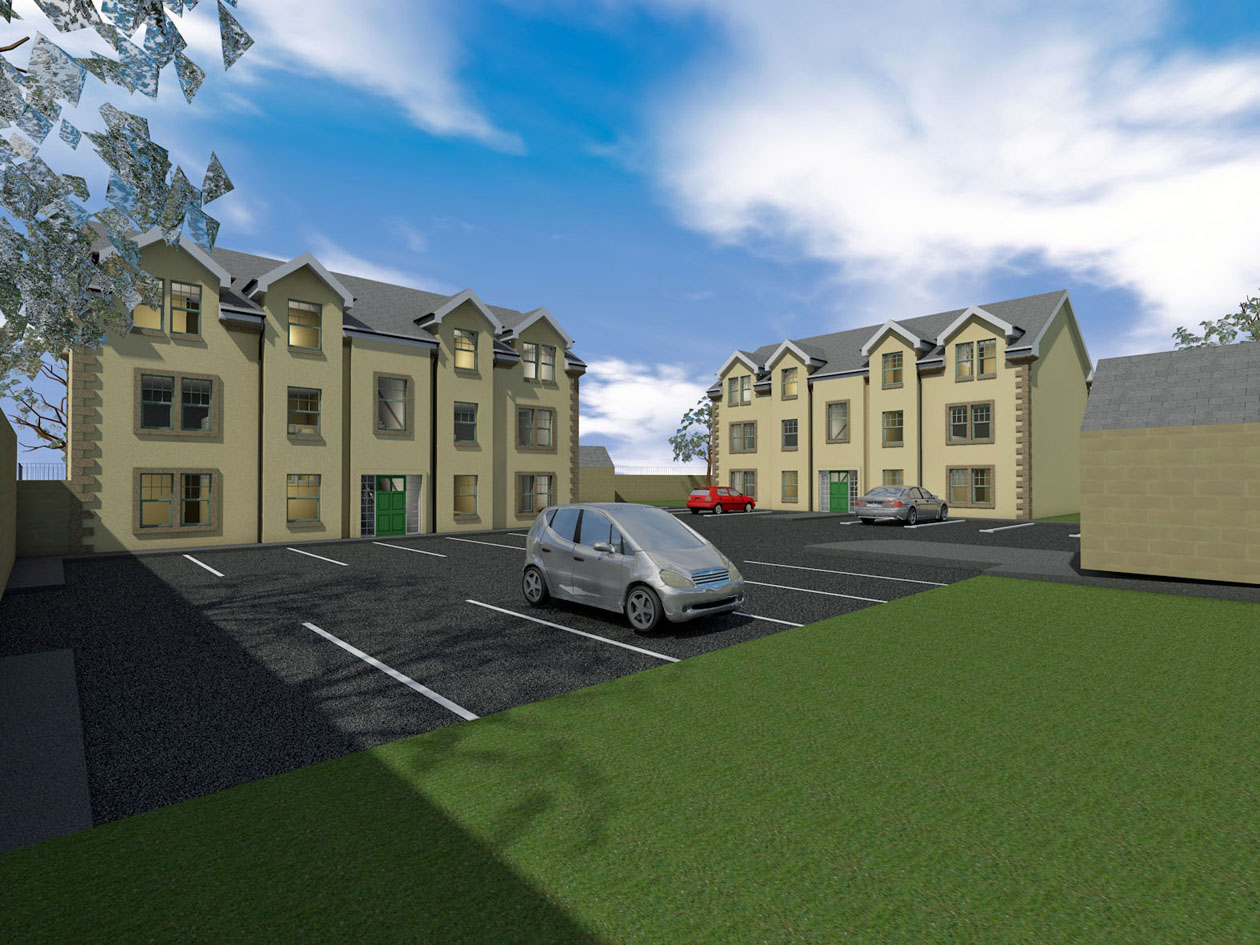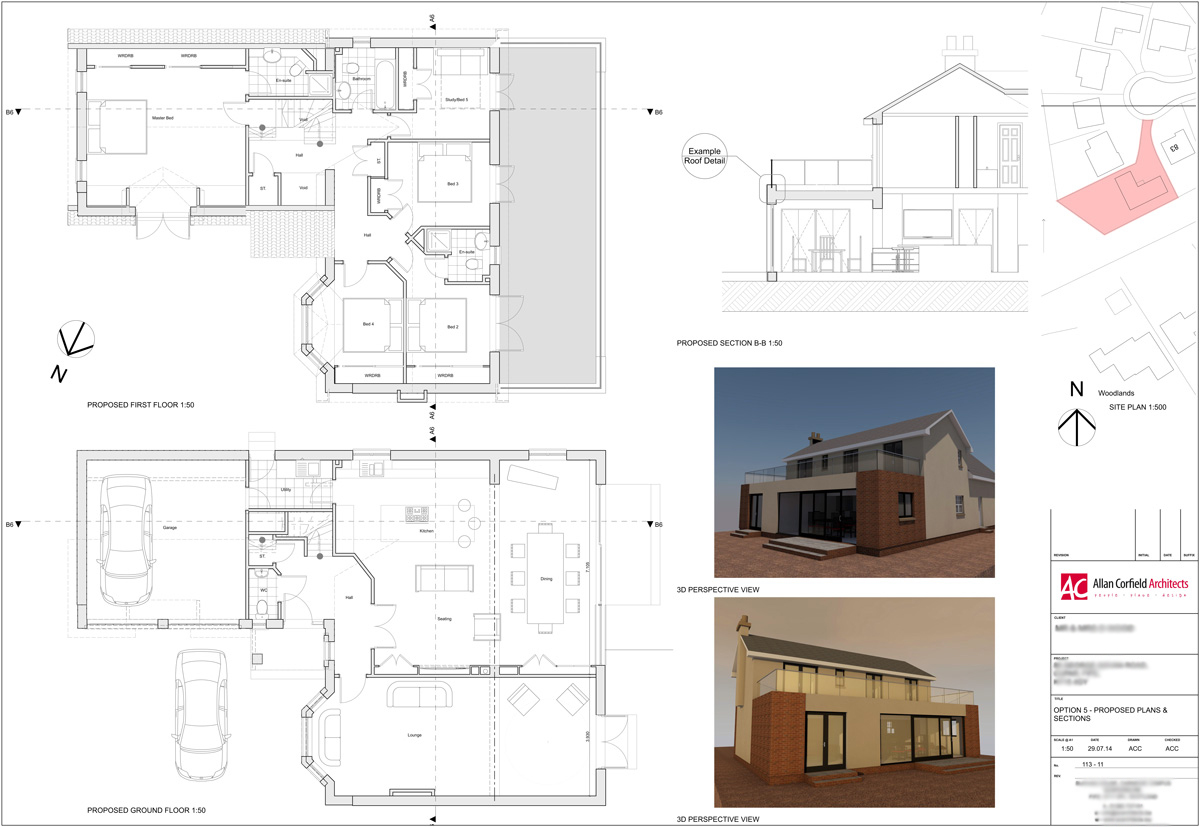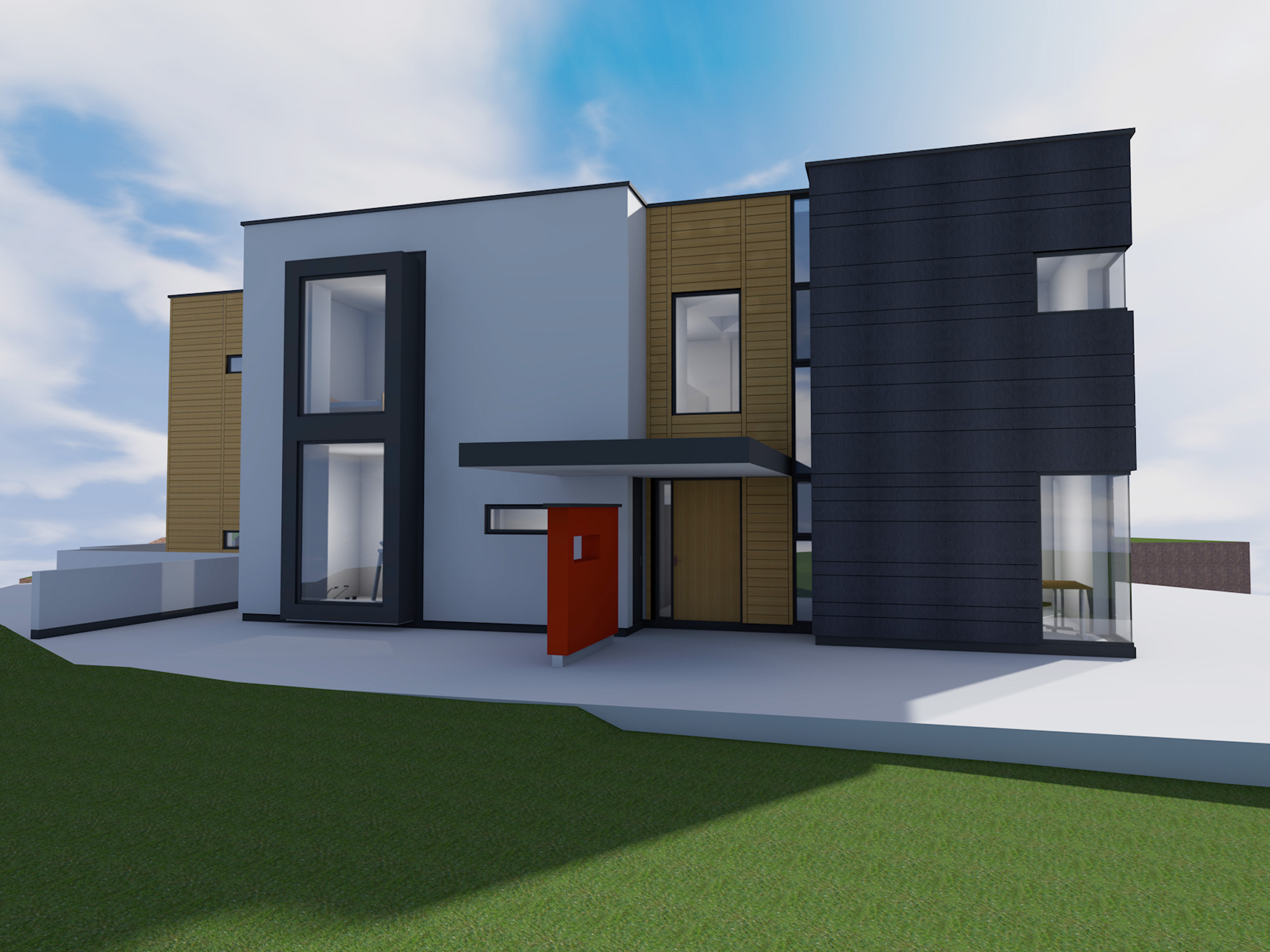
As the Planning Policies are different in Scotland and England we created this 2 part series on ‘why appoint a Planning Consultant’ and spoke with our go-to Scottish & English consultants. In Part 1 we speak with Derek Scott who is a Chartered Town Planning Consultant based in Edinburgh, Scotland.
FIRST OF ALL, WHAT IS A PLANNING CONSULTANT AND HOW CAN THEY HELP A SELF-BUILDER?
A Planning Consultant is an expert with an intimate knowledge of the many intricacies associated with the planning system. He or she will have a similar level of knowledge and training as the Planning Officers in a Local Authority Planning Department who will process a planning application. Some Planning Consultants, such as myself, have worked previously in local authority planning departments giving us an in-depth knowledge and understanding of the issues to be addressed in the determination of an application thus hopefully maximising the prospects of success.
The services of a Planning Consultant should not be necessary on straightforward Self Build projects. However, there are many cases that are not straightforward and where the appointment of a Planning Consultant will bring added value to the overall project team and hopefully smooth the way through the process.
Planning Consultants will, from the outset, be able to advise a prospective Self Build developer of the planning policies and guidelines applicable to the area within which the property is being proposed. They can, with the benefit of this knowledge:
- Assess a proposal and its chances of success.
- Plan a strategy to gain planning approval.
- Hold discussions and negotiations with local authorities.
- Submit the planning application with all relevant and applicable supporting studies.
- Represent the applicant at planning committee meetings.
- Assist with the discharge and purification of any conditions imposed on a planning permission.
- Assess, prepare and execute appeals in the event of an application being refused.

AT WHAT STAGE IN THE PROCESS OF A SELF BUILD SHOULD A PLANNING CONSULTANT BE HIRED?
A Planning Consultant can be appointed at any time during the procurement of planning permission for a Self Build project. Ideally he or she should be appointed at the site selection stage in order to assess a proposal and its chances of success. Advice at this crucial stage will dictate whether a site might be purchased or not. If not appointed at the site selection a Planning Consultant can be appointed at any subsequent stage during the process. This could be to assist and prepare with the submission of a planning application; manage it through the planning process; or in the event of a refusal to lodge an appeal with the relevant local authority or the Scottish Government.
A Planning Consultant and a self-builder should work closely with each other throughout the engagement to ensure that the requirements and expectations of the client are controlled and managed at all times.
IN SOME CASES A GOOD PLANNING CONSULTANT IS ABLE TO TURN THE TIDE IN FAVOUR OF GETTING PLANNING APPROVAL.
A Planning Consultant can, on occasions, look and present a proposal which is more compliant with policy considerations thus enhancing the chances of securing a consent. Whilst there is no substitute for a Planning Consultant’s early involvement in a project their expertise and experience can inject a positive spin on a proposal and have it assessed from an alternative perspective. It is important to remember that the submission and unfavourable determination of an application by a local authority does not represent the end of the process. It is important that all applications are prepared on the basis that an appeal against refusal may have to be lodged. The involvement of a Planning Consultant at this stage will add value to the process and enhance the chances of success.

WHAT IS THE UNIQUE ADVANTAGE OF HIRING A PLANNING CONSULTANT?
Whilst a self-builder or architect could theoretically do everything a Planning Consultant does, experience suggests that it does not always happen. Planning Consultants, in practice, tend to be more familiar with policy considerations and can quickly and more readily identify the issues that require to be addressed in any planning application. We would encourage the appointment of a Planning Consultant to manage the preparation of a planning application, the preparation of which could, in addition to an architect also include other consultants such as a landscape architect, drainage engineer, roads consultant, archaeologist, ecologist etc. A professionally prepared application which addresses all issues from the outset should provide comfort to the local authority department and increase the chances of ultimate success.
WHAT ARE YOUR TOP TIPS TO A SELF-BUILDER. WHAT COULD HELP THEM DECIDE WHETHER THEY NEED A PLANNING CONSULTANT OR NOT?
It is always advisable for a self-builder to discuss their project with a Planning Consultant at the earliest possible stage in the process. A good Planning Consultant will advise a prospective self-builder whether or not they require to be involved in a project or not. Top tips for a self-builder include the following:
- Discuss your project with a Planning Consultant.
- Establish if your site can be serviced (access, drainage, electricity, gas, telecommunications etc.) and the costs associated with these.
- Establish if the Local Planning Authority will support, in principle, the erection of a dwelling house on the site and any design limitations that might apply to the design of that house.
- Establish if the Local Planning Authority will require developer contributions to be made to them for the provision of related infrastructure (education, affordable housing, public transport, sports facilities, cemetery provision etc.) Whilst some local authorities do not assign developer contributions to single dwellings some do which in the worst case scenario could add £15,000-£20,000 to the overall cost.
- In the event of a local authority being minded to grant planning permission for the proposal discuss any conditions they intend to impose on a consent prior to it being issued to ensure that they can be complied with. Some planning permissions are incapable of implementation as a result of the conditions imposed on them.
- Never purchase a site for a Self Build project until at the very least it has planning permission in principle but preferably full planning permission for the house you wish to erect.

IS IT TOO LATE TO CONTACT A PLANNING CONSULTANT AFTER A PLANNING APPLICATION IS REJECTED?
It is never too late to engage the services of a Planning Consultant. Whilst it is preferable for a Planning Consultant to be appointed at the outset of the process their advice following the rejection of a planning application could be invaluable. A good Planning Consultant will advise on the prospects of success with an appeal in the event of a planning application being refused. Whilst a guarantee of success can never be given a professionally prepared appeal should maximise the chances of success. The re-submission of an application addressing the issues of refusal can on occasions represent a better option that proceeding to appeal.
Fees differ for every project depending on the issues to be addressed. All fees should be commensurate with the input required in order to maximise the chances of success.
WHAT ROLES WILL THE PLANNING CONSULTANT TAKE OVER FROM MY CURRENT ARCHITECT?
A Planning Consultant should work in partnership with an architect rather than take over any roles or duties. It is generally preferred that the initial point of contact with the Local Planning Authority is through the Planning Consultant. That may change through the course of the project.

IS IT BETTER TO HIRE A LOCAL PLANNING CONSULTANT WHO HAS A RELATIONSHIP WITH THE PLANNER OR A SPECIALIST PRACTICE?
Planning Consultants tend to operate over wide geographical areas and across Local Planning Authority boundaries. Whilst a local Planning Consultant who has a good relationship with a Local Planning Authority is desirable a local Planning Consultant who has a bad relationship with a Local Planning Authority is not. Every Local Planning Authority has policies and guidelines against which any development proposal is assessed. It should not matter if a Planning Consultant representing a self-builder is from the area or not.
CAN YOU HIGHLIGHT THE MAIN PRINCIPLES WITHIN THE FOLLOWING POLICIES THAT NEED TO BE CONSIDERED IF BUILDING IN: 1 WITHIN A SETTLEMENT BOUNDARY; AND 2 HOUSING IN THE COUNTRYSIDE?
Within a Settlement Boundary
- Establish what the land is zoned for in the Local Development Plan for the Area and whether there are any constraints that might prevent the site from being developed for residential use.
- Establish if a house can be accommodated on the site without adversely impacting on the amenity of neighbouring dwelling houses or adversely affecting the operation of any nearby business. Guidance on plot ratios, privacy distances, overshadowing/loss of light are generally available in supplementary guidance produced by Councils.
- Ensure that the site can be adequately serviced and accessed.
Countryside
- Establish in what circumstances a Council is prepared to support the erection of a dwelling house in the Countryside. Some Councils have almost a complete prohibition on building in the countryside whereas others, for example allow for the erection of new houses on appropriate sites, the redevelopment of brownfield sites in countryside locations, the erection of replacement houses; the addition of new houses to existing groups, or the infilling of gap sites between existing houses.
- Ensure that the site can be adequately serviced and accessed.
CAN YOU GIVE SOME TOP TIPS TO CONSIDER WHEN DEMOLISHING AN EXISTING HOUSE AND BUILDING A REPLACEMENT DWELLING?
- Discuss proposals with Council to establish what if any policies apply to the erection of replacement dwellings.
- Establish from the outset if the building to be demolished is protected in anyway by virtue of it being listed or located within a conservation area.
- Ensure that the replacement dwelling does not adversely impact in anyway on neighbouring dwelling houses.
We would like to thank Derek Scott for his cooperation and expert contribution to ACA’s blog. If you are interested in utilising Derek Scott Planning services for your Self Build project – why not contact them to discuss the options?




